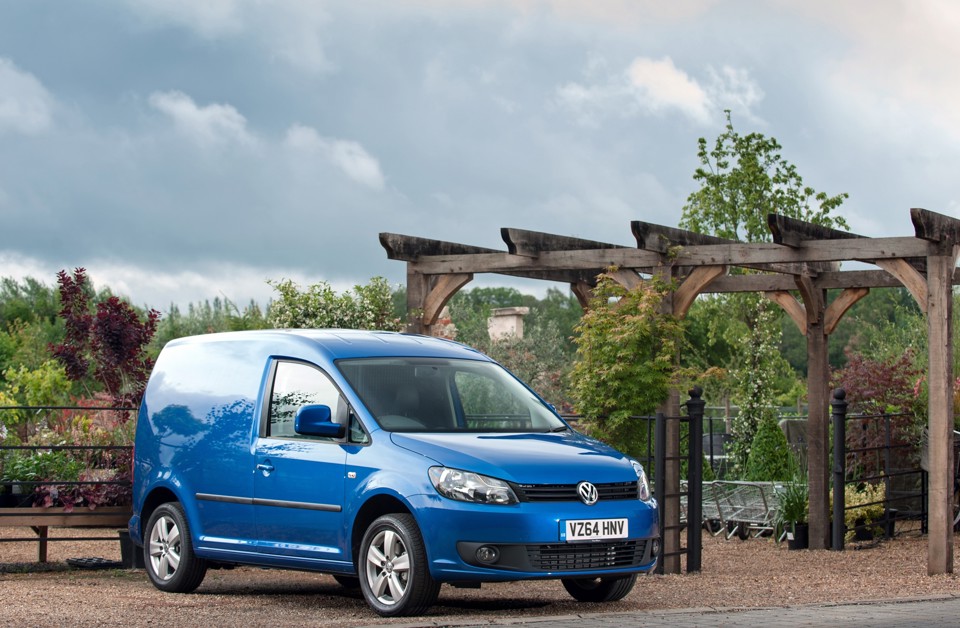Legislators’ bid to nudge drivers of older vans to move to cleaner diesels appears to have backfired. By Dean Bowkett
Future used van stock is likely to be in short supply three-to-four years from now as new registrations fell in March, traditionally the strongest month for sales.
The 5.6% year-on-year decline brought the first quarter to a close 3.7% down on 2017, with no sign of a recovery in the immediate future.
LCVs at the heavier end (more than 2.5-3.5 tonnes) were particularly badly hit with sales dropping 10.5% in the month.
Whether it is because of ‘diesel demonisation’, confusion about how to avoid the toxicity charge (T-charge) in London or some strategic thinking about the future values of diesel vans, new petrol van sales jumped 356.5% continuing the triple and, in some months, quadruple digit rates of growth which started around this time last year.
New petrol van sales may still only represent 1.05% of the total new LCV registrations in March, but they have now overtaken alternative fuelled vehicles (AFVs) as the second choice after diesel.
With CO2 emissions levels rising each month, it may not be long before our legislators realise that rather than pushing older diesel van drivers (pre-Euro 5) into cleaner Euro 6 diesel vans and hybrids they have actually succeeded in pushing up petrol van sales.
With emissions and clean air policy remaining at the forefront of politicians’ minds, thanks to lobbyists like ClientEarth and potential pollution fines coming from the European Commission, the Government will need to take action to avoid swapping one issue with another.
This is likely to include further promotion of electric powertrains.
On the used van front, need and function continue to override political rhetoric.
BCA chief operating officer UK Remarketing Stuart Pearson said: “BCA is experiencing exceptional demand from buyers for LCV stock resulting in record-breaking performances around the group.”
Manheim echoed BCA’s performance by also reporting strong demand and record conversion rates.
First time conversion rates for all vans hit 82%, according to Manheim, while average days to sell of 14 days in March was their quickest on record.
At Shoreham Vehicle Auctions (SVA), commercial vehicle manager Tim Spencer is also seeing high levels of demand.
While good presentation condition and high specification remain de rigueur if you want the best prices and the fastest conversion rates, Spencer noted “demand was high and prices remained strong with traders buying all profiles of stock”.
With strong demand comes improving used values and BCA’s record LCV average price in February of £7,069 was eclipsed by a 14.3% year-on-year rise in March as average LCV values hit £7,464.
While the average age fell by 1.22 months to 49.73, average mileage dropped by just 0.6% so the rise is very real and is not being masked by a significant change in age and mileage.
Well maintained and good condition LCVs coming from fleet and leasing channels fared particularly well in March, recording a near record breaking 16.8% year-on-year rise to £8,291, according to BCA, with very little of that increase down to the marginal improvements in age and mileage reported.
Van condition boosting record prices is a theme also picked up by Matthew Davock, head of LCV at Manheim, as he repeated the sentiments expressed by many over the past few months by reporting a “super-heated” market place.
According to Davock, Manheim saw prices increasing £313 year-on-year and £869 over March 2016, adding that “buyers look for the highest quality retail mileage stock”.
The trade guides are also in agreement with the positive messages coming from the auctions with Cap HPI noting overall sales at 0.93% above book in March and 2.1% above in April.
Glass’s chief commercial vehicle editor Andy Picton continued the good news theme, reporting March prices as rising 3.1% year-on-year even though the average age increased by just 1.1 months with the average mileage remaining pretty flat.
Spencer was even more upbeat than the guides explaining that “from nearly new ex-rental stock to four-year-old fleet vans, the market shows no signs of letting up with prices ending April way ahead of book”.
To substantiate his view of the guides being behind the market, he cited a sale of ex-utility VW Caddys on 14 and 64 plates with 20,000-30,000 miles on the clock which were sold during April making “£600-700 above book”.
The trade guides remain in that invidious position in a market rising or falling rapidly of trying to report the trends without being seen as leading them.
Online buying continues to grow as Davock reported a 3% year-on-year increase in online sales with 36% of all vans sold in March via Simulcast, although it is worth remembering the awful weather conditions in March kept many buyers off the roads and tucked up in front of their computer screens.
Cap HPI also noted that the poor weather conditions boosted online sales in March but added that footfall across the auction houses showed no “appreciable downturn” as conditions improved during the month.
There is no doubt online auctions are now an accepted part of used van buying and, as long as the seller garners a reputation for transparency in the way it describes and presents its vehicles, this should help boost bidders from ever further afield to buy online.
In order to understand where their online sales customers are based, SVA has been tracking where its sold stock ends up, saying that it “is regularly travelling a few hundred miles from Shoreham once it has been purchased to satisfy demand”.
A number of sources are reporting a shortfall in supply against demand particularly for stock of Euro 6 diesel vans.
According to Picton “demand is growing but, with the exception of a limited volume from rental sources, the supply generally isn’t available at present.”
With the T-charge now with us, there may be an opportunity for anyone defleeting low mileage, good condition Euro 6 vans to make some decent money, particularly from sales around London.
The reticence visible in the new van market for hybrids and EVs can also been seen in the used van market with sales volumes remaining negligible.
In order to stimulate the used LCV alternative fuel market, SVA has even gone as far as to launch used electric van courses in conjunction with Energy Saving Trust.
According to Spencer, the aim is to try to create confidence and demand in the market from used LCV buyers.
It is hoped this will “give used dealers confidence to buy EVs at auction” which “will in turn help generate additional confidence among leasing suppliers to strengthen residual values”, he said.
Looking forward and the general consensus is that even though the new LCV market is struggling, the used LCV market is on fire.
The volume of used vans should continue to rise but, with demand so high, paying attention to vehicle return damage and ultimately sale condition should see further record conversion rates and prices.



















Login to comment
Comments
No comments have been made yet.